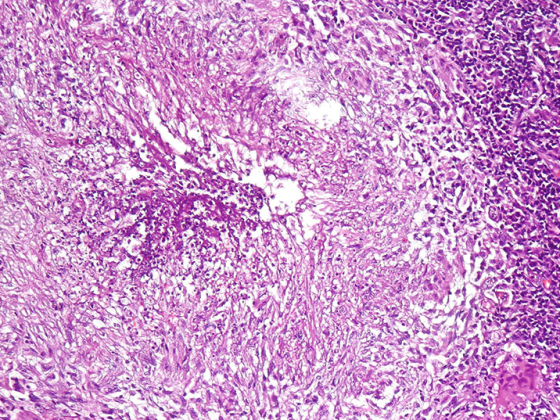Thanks to a drug originally developed to combat heart disease, a team of doctors at the Eye Clinic of the University Hospital Erlangen (D) has succeeded in an individual healing trial succeeded for the first time that a 59-year-old man with Long-COVID syndrome became symptom-free. Whether the active ingredient also helps other sufferers will soon be be verified in a clinical trial.
“At the moment, unfortunately, we can’t treat more people with the drug because it hasn’t gone through all the registration trials yet,” said Prof. Christian Mardin, M.D., senior consultant at the eye clinic. The physicians of the Eye Clinic and the Medical Clinic 1 – Gastroenterology, Pneumology and Endocrinology and the Medical Clinic 3 – Rheumatology and immunology of the University Hospital Erlangen had already found out in advance within the framework of the ReCOVer study: Those who have had a COVID-19 infection still have significantly reduced blood flow to their eyes many months later. Background thought to the undertaken healing attempt was that the changed blood circulation is certainly not limited to the eye, but can be seen exemplary for the whole body.
Months after the infection, the team of doctors found certain proteins in the blood of former COVID-19 patients that they have been dealing with for many years in connection with glaucoma: Autoantibodies against G protein-coupled receptors. Blood tests showed that patients have several of these proteins after corona infection. The cardiac drug BC 007 binds these harmful autoantibodies. This would make it possible to render the autoantibodies harmless and possibly improve the circulatory disorders. The drug was put into a pivotal trial several years ago specifically for patients with severe heart disease. The original intention was to help glaucoma patients in Erlangen. “Then, when we saw the results that came out of collaborative projects on Long COVID, it was like many little pieces of the puzzle that fit together for us. It was quite conceivable that Long COVID symptoms could also improve as a result,” says Dr. Dr. Bettina Hohberger, a specialist at the eye clinic.
Blood circulation significantly improved
When a long-time glaucoma patient of the Erlangen Glaucoma Registry reported his complaints after surviving a corona infection – loss of taste, severe concentration disorders and fatigue, which massively limited his professional and private life – the 59-year-old received BC 007 by infusion as part of an individual healing trial and remained an inpatient at the University Hospital Erlangen for three days. “An improvement was already evident within a few hours. On discharge, our patient already felt significantly more recovered than before the administration, and his autoantibody values confirmed this impression,” says the medical team, describing the course of treatment. The concentration difficulties also disappeared, the man’s performance increased again and his sense of taste returned. “Overall, the blood flow in the capillaries that we can measure in the eye has improved significantly.” The team at the Erlangen Eye Clinic therefore assumes that the patient’s Long COVID symptoms have disappeared thanks to the improved blood flow.
Explanation sought for the success
The Eye Hospital research team continued to investigate capillary blood flow in COVID-19 patients. They visualized the blood flow using a painless and non-invasive method: OCT angiography (optical coherence angiography). Only in the eye and at the nail fold – the transition between the nail bed and the finger – is it possible to visualize blood flow without injecting contrast agents, for example. As part of the clinical trial, ophthalmologists at the University Hospital have been able to offer this examination method to targeted patients following their COVID-19 infection since 2020. Initial evaluations show: Even months after the disease, blood flow within the retina is significantly restricted, even if affected individuals have no visual complaints. The clinical trial in patients following COVID-19 infection continues. Targeted mechanisms leading to the restricted blood flow are now being investigated and may explain the mechanism of action of the successful cure.
Source: Friedrich-Alexander University Erlangen-Nuremberg (D)
Literature:
- Hohberger B, Ganslmayer M, Lucio M, et al: Retinal Microcirculation as a Correlate of a Systemic Capillary Impairment After Severe Acute Respiratory Syndrome Coronavirus 2 Infection. Front Med 2021; doi: 10.3389/fmed.2021.676554.
InFo PNEUMOLOGY & ALLERGOLOGY 2021; 3(3): 17 (published 9/17-21, ahead of print).











